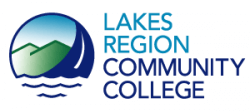State Wide Policies
Find about New Hampshire’s statewide system of two-year colleges, offering associate degrees, professional training, and transfer pathways to four-year degrees.
Acceptable Use Policy
Please click here for our Acceptable Use Policy.
Drug Free Workplace Policy
I. Purpose: The CCSNH is committed to ensuring a drug-free workplace. Legal Requirements: In accordance with the Drug Free Workplace Act of 1988 (Pub. L. No. 100-690, Title V, Subtitle D) employees are prohibited from the unlawful manufacture, distribution, dispensing, possession, or use of any controlled substance in the workplace. Chemical dependency can and does affect work performance and attendance.
II. Requirements: As a condition of employment employees are:
- Prohibited from the use, possession, distribution, dispensation, or unlawful manufacture of any controlled substance while on the property of the CCSNH or its colleges, during work hours, or while attending any CCSNH or college sponsored activity or function;
- Prohibited from consuming alcohol while on duty or in the workplace and from reporting to work while under the influence of alcoholic beverages or controlled substances (drugs);
- Driving any CCSNH or college owned vehicle, or driving a personal vehicle while on business for the CCSNH or its colleges, while under the influence of alcoholic beverages or controlled substances (drugs);
- Required to report in writing to the College or CCSNH Human Resources Office any criminal conviction based on the unlawful use, possession, distribution, dispensation or manufacture of a controlled substance where the violation occurred on CCSNH or its college premises or that occurs in the workplace. The reporting of such incidents must occur within five (5) calendar days from entry of the trial court’s decision, regardless of whether an appeal is taken.
III. Sanctions:
- Conviction of a drug-related crime shall be a basis for disciplinary action, up to and including termination.
- A notice of the drug conviction shall be placed in the employee’s personnel file in accordance with normal disciplinary procedures.
- Conviction of a drug-related crime shall require the employee to utilize the services of the CCSNH’s employee assistance program and successfully complete an approved drug abuse assistance or rehabilitation program recommended by the EAP as a condition of continued employment.
IV. Programs: The CCSNH and its colleges shall initiate a drug-free awareness program which informs CCSNH employees of the dangers of drug abuse in the workplace; the CCSNH rules and policies requiring a drug-free workplace; or the availability of employee assistance programs; and of the penalties that may be imposed for abuse violations occurring in the workplace.
Social Media Policy
The following outlines the CCSNH policy on social media. Online social utilities allow individuals or groups of individuals to create a place for a group of people to come together online to post information, news, and events. College pages are intended to provide the college community with a venue to share thoughts, ideas, and experiences through discussions, postings, photos, and videos. Publication guidelines will be similar to any other media. It is further understood that each college and the CCSNH System office will have their own internal approval processes to carry out the policies enumerated below:
- The Communications Director or other individual(s) designated by the President or Chancellor shall approve all sites that can be used for college or CCSNH business. If an employee wishes to submit a site for consideration, a request must be submitted in writing to the Communications Director or designee. Contributors to college or CCSNH pages will follow the established employee and student guidelines. Oversight of all affiliated pages is the responsibility of the college Communications Director or designee, who will periodically review pages to ensure college policies are followed and that pages are produced in accordance with the best interests of the college.
- If the college or CCSNH logo is to be used, it must be approved by the college’s or CCSNH’s Communications Director or designee who must be notified of exact use. No portion of the logo may be altered; colors and fonts must remain as in original file sent from the Communications Director or designee. The logo may not be placed on a background that impairs readability of the mark. Preferred color background is white. Additional art or logos may not be attached to the logo. The college or CCSNH logo should not be used on any personal social media sites.
- No photos may be placed on a college sponsored page or site without prior approval from the Communications Director or designee. Photos of the college should be provided by the Communications Director or designee whenever possible. The Communications Director or designee reserves the right to remove photos and video images that misrepresent the college or CCSNH or are not of acceptable quality or have been posted without permission or in violation of federal or state law. Whenever possible, a watermark should be added or images should be posted at 72 dpi and approximately 800×600 resolution to protect the college’s intellectual property.
- Because the technology that drives Web communication changes rapidly, this policy may be adjusted to reflect issues that may arise in the management and implementation of the page or for any other reason that supports the college’s or CCSNH’s priorities for the page.
- General Guidelines
- If an employee has questions about whether it is appropriate to write about certain kinds of material in an approved college or CCSNH site, he/she should consult with a supervisor beforehand.
- If an employee is authorized by a supervisor to represent the college or the System in social media, he/she should so indicate. If the employee chooses to post about the college or the CCSNH on personal time, the employee should identify himself/herself as a college or CCSNH faculty or staff member, especially when promoting the college or CCSNH through social media.
- References to college or CCSNH information should always cite the college or CCSNH website as providing the most accurate and updated information.
- Do not post confidential or proprietary information about the college or CCSNH students, alumni or fellow employees.
- As stated in the Acceptable Use Policy, college and CCSNH computers and work time are to be used for college/CCSNH-related business. It’s appropriate to post at work if comments are directly related to accomplishing work goals, such as seeking sources for information or working with others to resolve a problem. Maintain personal sites during personal time using non-work computers.
Personal Site Guidelines:
- The CCSNH employee is a citizen and a representative of an educational institution or system. When an employee participates in a social networking environment, he/she should be free from institutional censorship or discipline. However, the employee should remember that the public may judge the employee and his/her college or the CCSNH system based on those utterances. Hence, the employee, when participating in a social networking site, should attempt at all times to be accurate, exercise appropriate restraint, show respect for the opinion of others, and not subject the institution or the CCSNH system to public embarrassment or negative attention.
- The employee is legally liable for what is posted on his/her own site and on the sites of others.
- The use of the college or CCSNH System logo, or any other college or CCSNH System marks or images on a personal online site is prohibited.
- The use of the college or CCSNH System name to promote or endorse any product, cause or political party or candidate is prohibited.
- Since the CCSNH is best served in an environment characterized by professional and ethical behavior on the part of each member of its community, CCSNH respects the individual rights of its employees. However, it also recognizes its responsibility to communicate to the CCSNH community the professional risks associated with participation in a non-work related social networking sites that encourages social interaction between students and faculty and/or staff. If an employee enters into such a social interaction, the employee risks being exposed to complaints that may call into question his/her integrity and professionalism. Therefore, it is the position of the CCSNH to encourage faculty and staff to exercise caution in knowingly becoming “friends” on a social networking site sponsored by a student or when inviting students as “friends” on the faculty or staff person’s personal/private social networking site.
Title IX (Sexual Misconduct Policy & Grievance Procedure
Title IX Sexual Misconduct Policy & Grievance Procedure (Employees) PDF


